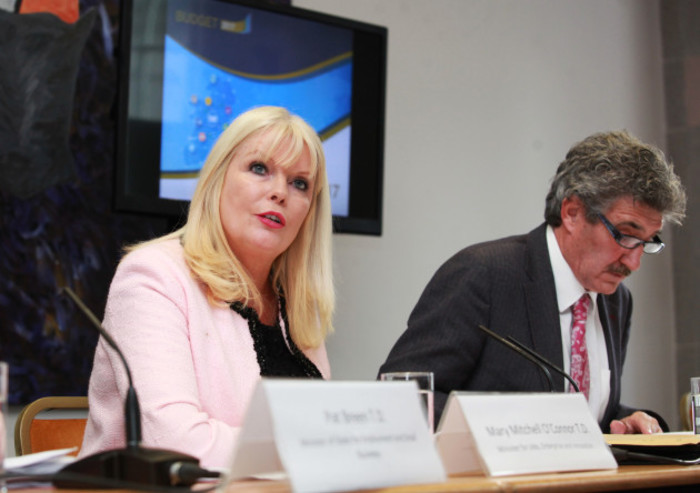A state scheme to help fight the 'blight' of late payments is struggling for sign-ups
Only 34 private firms have committed to the Prompt Payment Code after two years.
FEWER THAN 40 businesses have committed to a government-backed scheme to encourage prompt payment of bills after a two-year period.
The Prompt Payment Code (PPC) was launched by the Department of Jobs, Enterprise and Innovation in March 2015 to address the culture of late payments in Ireland.
According to the Small Firms Association (SFA), it takes an average of 62 days for small firms to receive payment, while ISME’s most recent credit-watch survey put the wait at 59 days.
Signatories to the code are expected to adhere to payment deadlines set out in contracts or pay within 30 days if no time frame is set, but there are no penalties for failing to do so.
However any organisation that agrees to the code and doesn’t abide by the rules can be struck off the list.
Jobs Minister Mary Mitchell O’Connor recently said the withholding or delaying of payments to businesses in Ireland is “a damaging culture” and a “blight” that stops small businesses from investing in growth.
Addressing the SFA’s conference last week, O’Connor said the low number of sign-ups by businesses to date is “disappointing”.
“When the code was launched in 2015, government led by example and ensured that all departments, their agencies and public sector bodies signed up. It is now time for businesses to step up and make a similar commitment,” she said.
 Mary Mitchell O'Connor
Mary Mitchell O'Connor
The PPC website states that 195 organisations have signed up to the code, however the list includes several duplicate entries.
The majority of signatories to the code are government departments, agencies and semi-state companies, with only 34 businesses listed in total.
In response to a parliamentary question this year, O’Connor said nearly €49,000 was spent on the campaign and the development of a new PPC website in 2016. Another one-off contribution of €10,000 went into making the original site in 2015.
Low sign-ups
The country’s three main, multi-sector business groups – ISME, the SFA and Ibec – have all publicly backed the initiative and are still consulting with the government on the scheme.
In her speech, O’Connor said that the code is the best way to address late payments in Ireland and more legislation to force on-time payments would not help the situation.
Speaking to Fora, SFA acting director Linda Barry said she agreed that the code is a better alternative to extra regulation.
“What small firms have now is the ability to levy penalty interest on late payments. It’s a tricky one … we find that although that ability is there in legislation, many of our companies don’t utilise that.
“So I don’t think more legislation is the answer. That’s not what we’ll be pushing for. The PPC is what we’ve been pushing for and we recognise it will take time to shift the culture.”
ISME chief executive Neil McDonnell said his members regularly bring up late payment as a big issue affecting their businesses.
 ISME CEO Neil McDonnell
ISME CEO Neil McDonnell
He added that the only way for the code to catch on is if big businesses lead the way.
“Realistically, you will only get momentum in this when you start seeing the big retailers and multinationals in there saying we will pay.
“To us, it’s a corporate social responsibility and ethical matter. Big corporations should do it, be proud to do it and use it as a tool themselves. They should brag about it and say they pay on time.”
Barry added that the relaunch of the code this year has made it easier to sign up, which she hopes will drive further signatories. There is no longer the requirement that firms need two referees in order to be accepted.
However, both she and McDonnell said getting companies to address the culture of late payment was difficult with external pressures mounting.
McDonnell said: “There is so much noise at the moment in Irish business. There’s Brexit this, credit that, public pay as well. It’s such a noisy space that trying to get people to engage with late payments is tough.”
Correction: This piece previously stated businesses signed up to the PPC are required to pay invoices within 15-days. The article has been updated to reflect that there is no specific payment deadline set out as part of the PPC.





